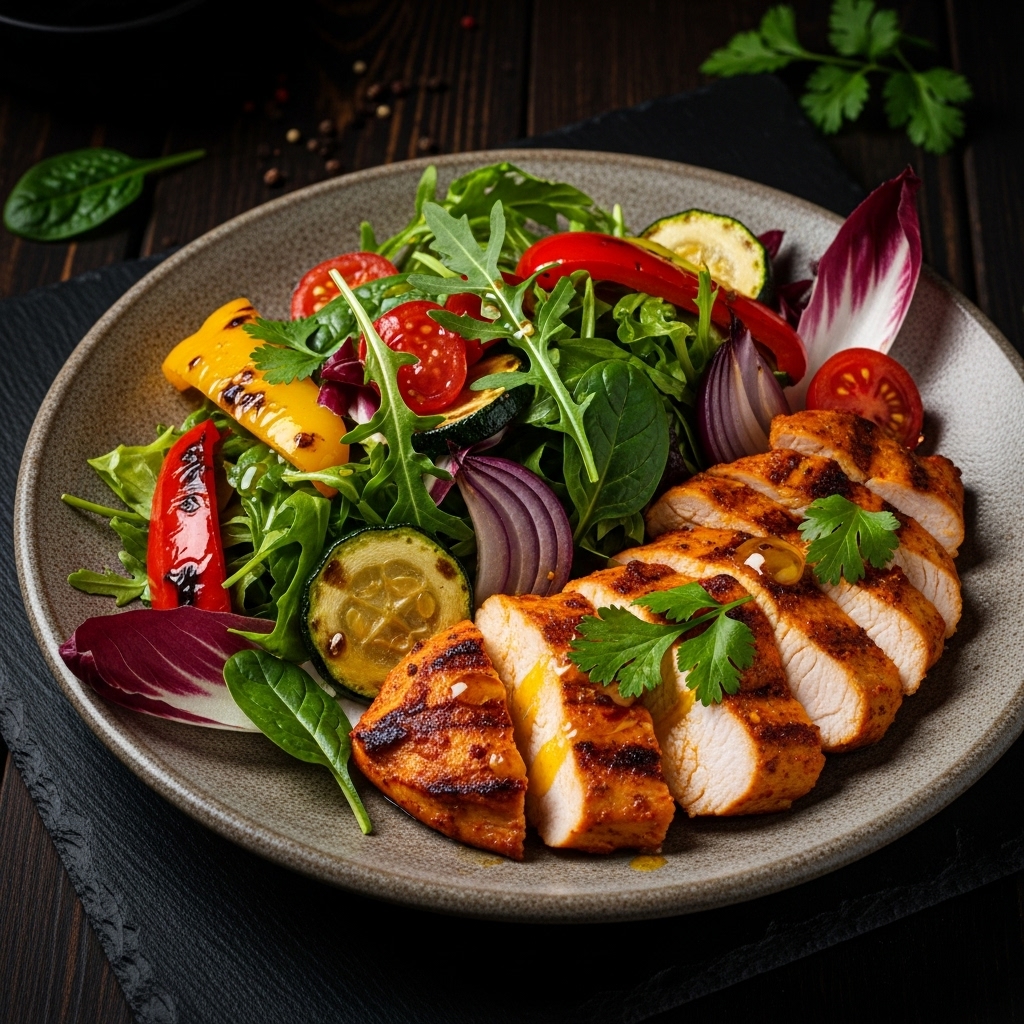
“Portuguese Lunch: Grilled Piri Piri Chicken Salad with Roasted Vegetables (Paleo-Friendly)”
This scrumptious, Paleo-friendly Portuguese Lunch: Grilled Piri Piri Chicken Salad with Roasted Vegetables is perfect for those looking to enjoy authentic flavors while adhering to dietary restrictions. With an emphasis on mouthfeel, aroma, and plating appeal, this dish boasts a symphony of textures and tastes that will transport you straight to Portugal.
Allergens
Gluten-free, Dairy-free, Nut-free. Contains chicken and piri piri sauce which may contain gluten or soy.
Ingredients
- 2 boneless, skinless chicken breasts
- 1/4 cup piri piri sauce
- 2 cups mixed vegetables (e.g., bell peppers, zucchini, carrots)
- 2 cups mixed salad greens
- 1/4 cup olive oil
- Salt and pepper to taste
Instructions
- In a medium bowl, marinate the chicken breasts with piri piri sauce for at least 30 minutes in the refrigerator.
- Preheat your oven to 400°F (205°C). Wash and chop the vegetables into bite sized pieces. Toss them with olive oil, salt, and pepper, then spread them out on a baking sheet. Roast the vegetables for 20 25 minutes or until tender and slightly browned.
- Preheat your grill or grill pan to medium high heat. Grill the marinated chicken breasts for 6 8 minutes per side or until fully cooked. Allow them to rest for a few minutes before slicing.
- Arrange the mixed salad greens on two plates, top with roasted vegetables and sliced chicken. Drizzle with remaining piri piri sauce for added flavor.
Chef’s Insight
The perfect balance of flavors in this dish makes it a crowd-pleaser, even among non-Paleo eaters.
Notes
Be sure to marinate the chicken for at least 30 minutes for optimal flavor absorption.
